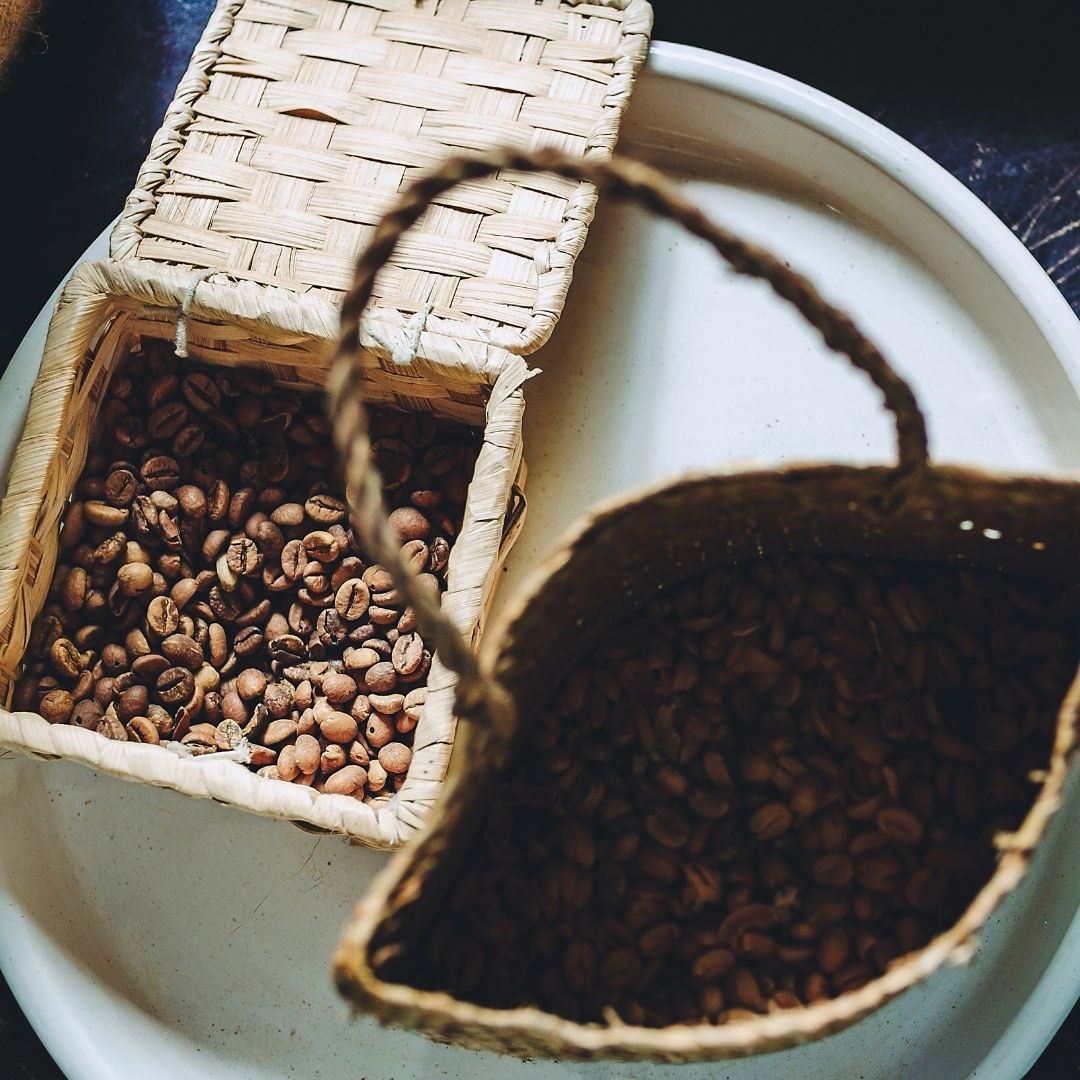Arabica vs Robusta: What’s the difference?
by Beatrice MarkenzonJan 27, 2021

It’s time to put on your learning caps and brew yourself a fresh coffee cup—it’s time for some bean knowledge! Arabica vs. Robusta is one of the most significant decisions you’ll make when entering the world of delicious coffee. This guide will help you make an educated decision between these two types of coffee to find your new favorite. (Hint: We bet it’ll be Arabica!)
What is Arabica Coffee?
Arabica coffee comes from the beans of a Coffea arabica plant, which originated in Ethiopia. Arabica is the world’s most popular coffee type, equating to over 60% of cups drank.
What is Robusta Coffee?
Robusta Coffee is coffee made from the beans of the Coffea canephora plant, the origins of which are in Africa. Robusta coffee is notoriously bitter and is used primarily in instant coffee, espresso, and as a filler in certain blends of ground coffee.
Arabica vs Robusta
Without a doubt, coffee aficionados have heard the words “Robusta” or “Arabica.” If you aren’t familiar with either, these two terms describe the two different beans grown commercially.
They are the same in that when harvested, roasted, and eventually brewed to become that magical thing we call coffee. However, that’s where the similarities end.
Arabica and Robusta differ when it comes to taste, growing environments, price, and quality.
Taste
Many people think that Robusta has an oatmeal-like taste, somewhere between neutral and harsh. Unroasted Robusta beans smell sort of raw-peanutty.
Arabica, on the other hand, has an extensive taste range (depending on its varietal). The range differs from sweet-soft to sharp-tangy. When unroasted, Arabica beans smell like blueberries. Their roasted smell is described as perfumey with notes of fruit and sugar tones.
Growing Environment
Robusta coffee beans come from a resilient plant that can be grown at low altitudes of 200-800 meters. Robusta beans aren’t very susceptible to pests’ damage, and they produce more finished products per acre and require relatively low production costs.
Contrariwise, Arabica coffee beans are fragile and must grow in cool, subtropical climates. Arabica beans also need a lot of moisture, rich soil, shade, and sun. Because of their fragility, Arabica beans are vulnerable to attack from various pests and can be damaged by cold temperatures or poor handling. This type of bean also needs to be grown at a higher elevation (600-2000 meters).
Price
Robusta is much cheaper than Arabica, but it is also worse for the environment and your taste buds.
Robusta fosters the use of mono-cropping, the practice of growing the same plant every year in one place. Because Robusta is a more resilient plant than the delicate Arabica, it can be grown in more places, leading to large companies purchasing vast amounts of the rainforest, clear-cutting the land, and planting Robusta beans. When done excessively, mono-cropping erodes the soil and demolishes nutrients that make the soil nearly unusable.
Because it’s harder to plant and grow, Arabica is more expensive than Robusta. And some companies may even mix Robusta with their Arabica to save money (and serve you a crappy cup). Look for 100% Arabica coffee when scouring the grocery aisle.
Arabica vs Robusta: Which is better?
No contest! If you had to choose between an Arabica bean and a Robusta bean, it’s essential to always choose Arabica!
But the main difference that we all care about is the fact that Arabica coffee tastes better than a cup of Robusta! Although it’s more expensive, it’s definitely worth it if you want to enjoy your morning cup of Joe.
What does Maud’s Coffee & Tea Use?
Maud’s uses gourmet 100% Arabica coffee beans that are carefully roasted by our 5th Generation Roastmaster then packaged into our recyclable single-serve pods. Our fresh ground coffee beans are nitrogen-flushed, expelling all oxygen and sealing in the freshness to be enjoyed one great cup at a time! Once you try Arabica blends, you’ll never go back. Start indulging in our robust and rich 100% Arabica gourmet coffee blends today!
(Article excerpt from theroasterie.com)


































